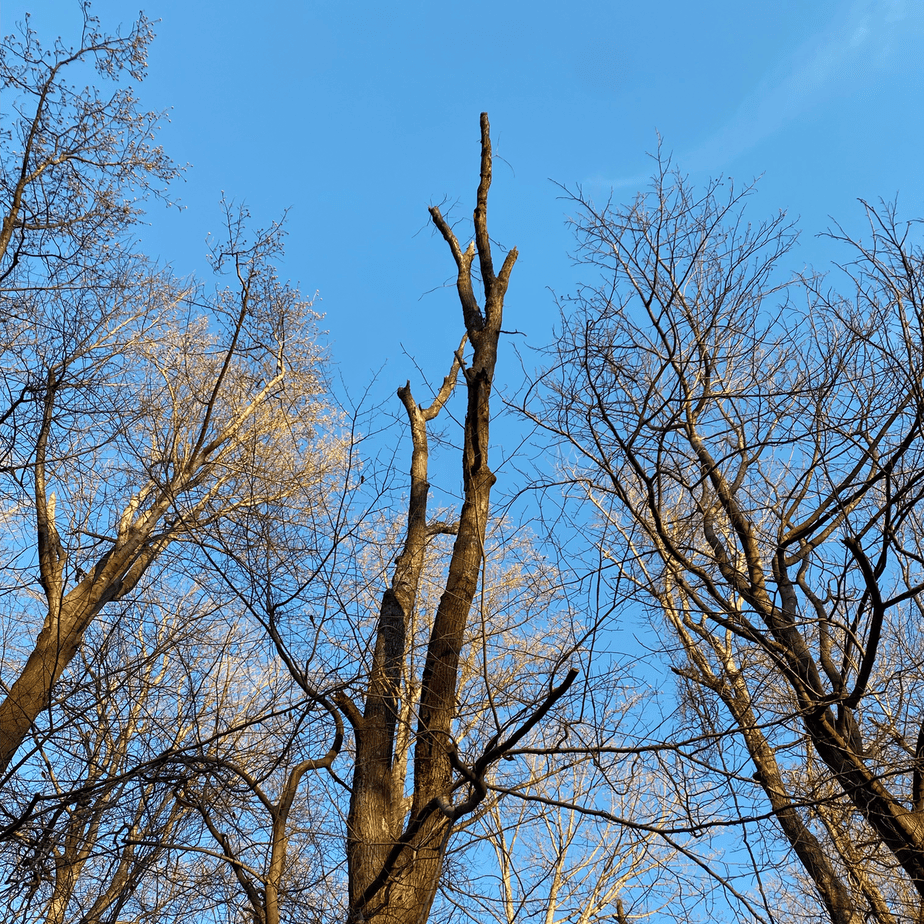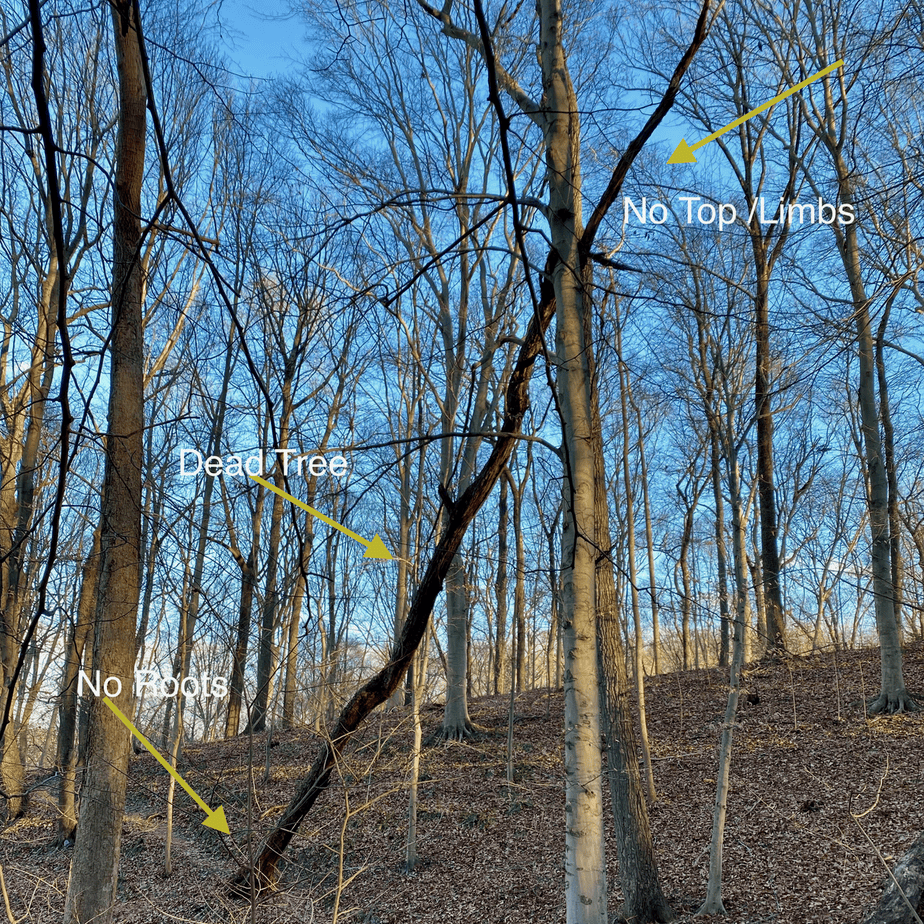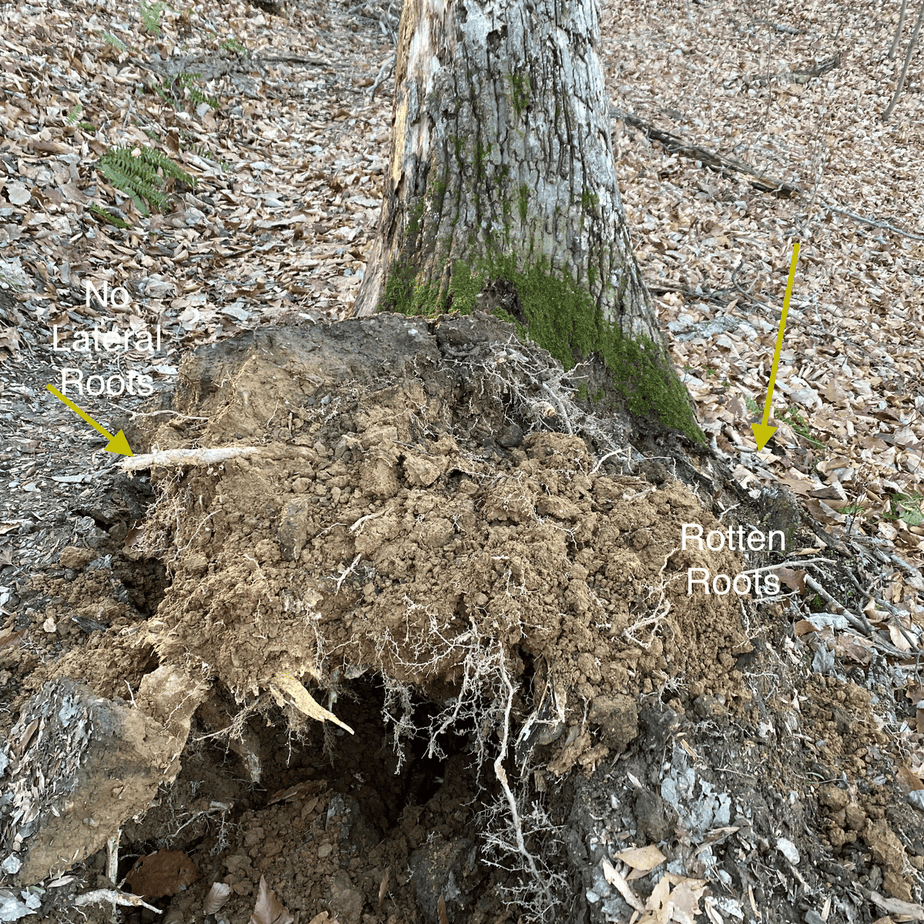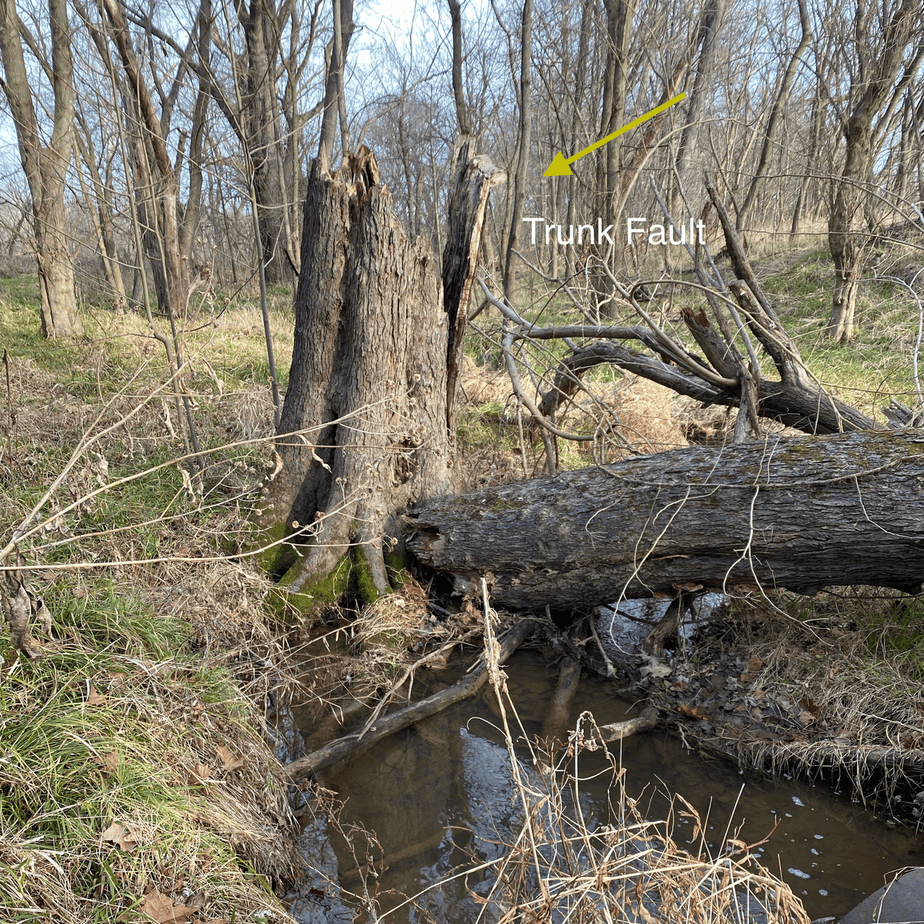Ever wonder when to remove a dead tree? There are several less than obvious reasons to consider when deciding when to remove a dead tree. Read below to consider some of these reasons. They are not as obvious as you might think.
Reasons Why to Remove a Dead Tree
First, dead trees eventually drop many, if not all of their limbs. This is a safety hazard. You cannot predict when a dead branch is going to fall.
Second, dead trees eventually fall. It doesn't have to be windy for them to fall. It can be a beautiful clear, still day, and a dead tree may fall.
Third, when dead trees fall on their own, they can damage surrounding trees. If you decide to remove a dead tree, it is best to do it before it decays drastically. When removing a dead tree, there is an inverse relationship between the amount of decay and safety. The more decayed the tree, the less safe it is to remove and the less predictable. Rotten branches and trunks can be unpredictable during the take down process. This is why some trees are called "widow makers".
Certain species of trees decay faster than others. For example, the Ash trees that were killed by the Emerald Ash Borer decayed and disintegrated in what seemed like record time. The Janka Hardness Scale will give you an idea of which woods are hardest.
Forth, dead trees can have significant trunk faults that increase their likelihood of falling. An inspection by a professional may help identify any areas of concern.
Finally, the roots are decaying and rotting too. This creates a less stable base to maintain the tree standing.
If you are interested in what other factors that increase tree removal costs, check out this blog post.
References: Lots of hands on experience combined with common sense.



